This page is available in: Español
Benedict of Nursia, Monastic, c. 543
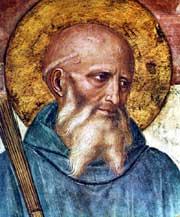
The Collect:
Rite I:
Gracious God, whose service is perfect freedom and in whose commandments there is nothing harsh nor burdensome, grant that we with thy servant Benedict, may listen with attentive minds, pray with fervent hearts, and serve thee with willing hands so that we live at peace with one another and in obedience to thy Word, Jesus Christ our Lord, who with thee and the Holy Ghost liveth and reigneth, one God, now and for ever. Amen.
Rite II:
Gracious God, whose service is perfect freedom and in whose commandments there is nothing harsh nor burdensome, grant that we with your servant Benedict, may listen with attentive minds, pray with fervent hearts, and serve you with willing hands so that we live at peace with one another and in obedience to thy Word, Jesus Christ our Lord, who with you and the Holy Spirit lives and reigns, one God, now and for ever. Amen.
First Lesson: 1 Kings 17:2-6
2 The word of the Lord came to him, saying, 3 ‘Go from here and turn eastwards, and hide yourself by the Wadi Cherith, which is east of the Jordan. 4 You shall drink from the wadi, and I have commanded the ravens to feed you there.’ 5 So he went and did according to the word of the Lord; he went and lived by the Wadi Cherith, which is east of the Jordan. 6 The ravens brought him bread and meat in the morning, and bread and meat in the evening; and he drank from the wadi.
Psalm: Psalm 4:1-5
1 Answer me when I call, O God, defender of my cause; *
you set me free when I am hard-pressed;
have mercy on me and hear my prayer.
2 “You mortals, how long will you dishonor my glory; *
how long will you worship dumb idols
and run after false gods?”
3 Know that the Lord does wonders for the faithful; *
when I call upon the Lord, he will hear me.
4 Tremble, then, and do not sin; *
speak to your heart in silence upon your bed.
5 Offer the appointed sacrifices *
and put your trust in the Lord.
Second Lesson: Philippians 2:12-18
12 Therefore, my beloved, just as you have always obeyed me, not only in my presence, but much more now in my absence, work out your own salvation with fear and trembling; 13 for it is God who is at work in you, enabling you both to will and to work for his good pleasure.
14 Do all things without murmuring and arguing, 15 so that you may be blameless and innocent, children of God without blemish in the midst of a crooked and perverse generation, in which you shine like stars in the world. 16 It is by your holding fast to the word of life that I can boast on the day of Christ that I did not run in vain or labour in vain. 17 But even if I am being poured out as a libation over the sacrifice and the offering of your faith, I am glad and rejoice with all of you— 18 and in the same way you also must be glad and rejoice with me.
Gospel: Luke 14:26-33
26 ‘Whoever comes to me and does not hate father and mother, wife and children, brothers and sisters, yes, and even life itself, cannot be my disciple. 27 Whoever does not carry the cross and follow me cannot be my disciple. 28 For which of you, intending to build a tower, does not first sit down and estimate the cost, to see whether he has enough to complete it? 29 Otherwise, when he has laid a foundation and is not able to finish, all who see it will begin to ridicule him, 30 saying, “This fellow began to build and was not able to finish.” 31 Or what king, going out to wage war against another king, will not sit down first and consider whether he is able with ten thousand to oppose the one who comes against him with twenty thousand? 32 If he cannot, then, while the other is still far away, he sends a delegation and asks for the terms of peace. 33 So therefore, none of you can become my disciple if you do not give up all your possessions.
Social Media
Sample Text: On this feast, we honor Benedict of Nursia, monastic founder and spiritual guide, whose Rule shaped centuries of Christian life rooted in humility, hospitality, and obedience. His witness continues to ground the Church in rhythm and balance.
“…that we with your servant Benedict, may listen with attentive minds, pray with fervent hearts, and serve you with willing hands…” #Episcopal
Instagram 1
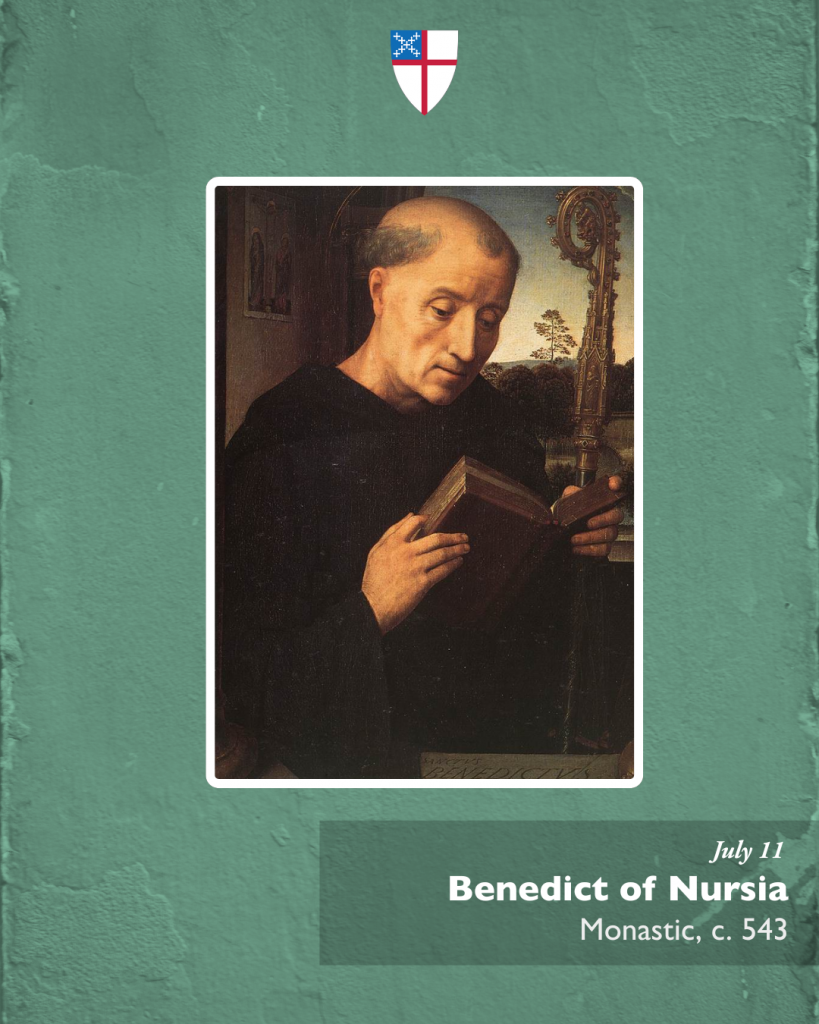
Instagram 2
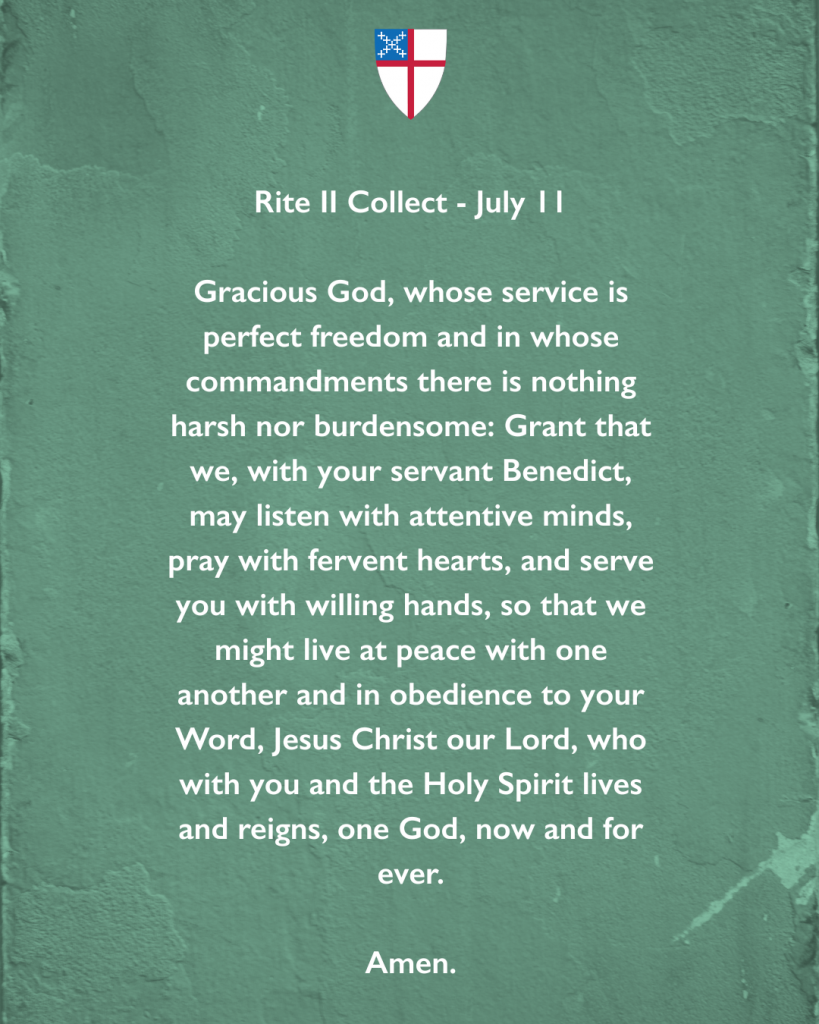
Facebook/Instagram Stories 1
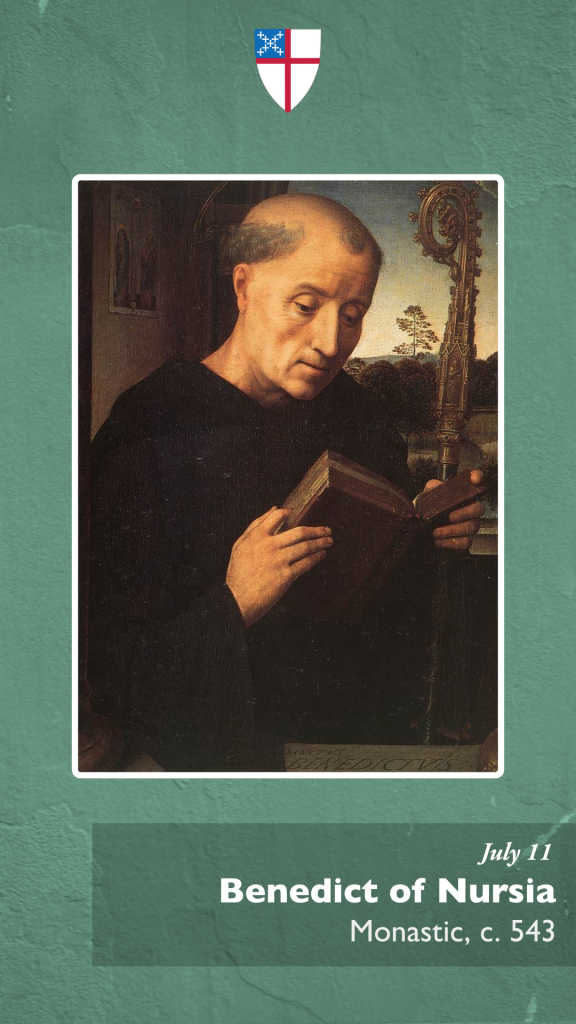
Facebook/Instagram Stories 2
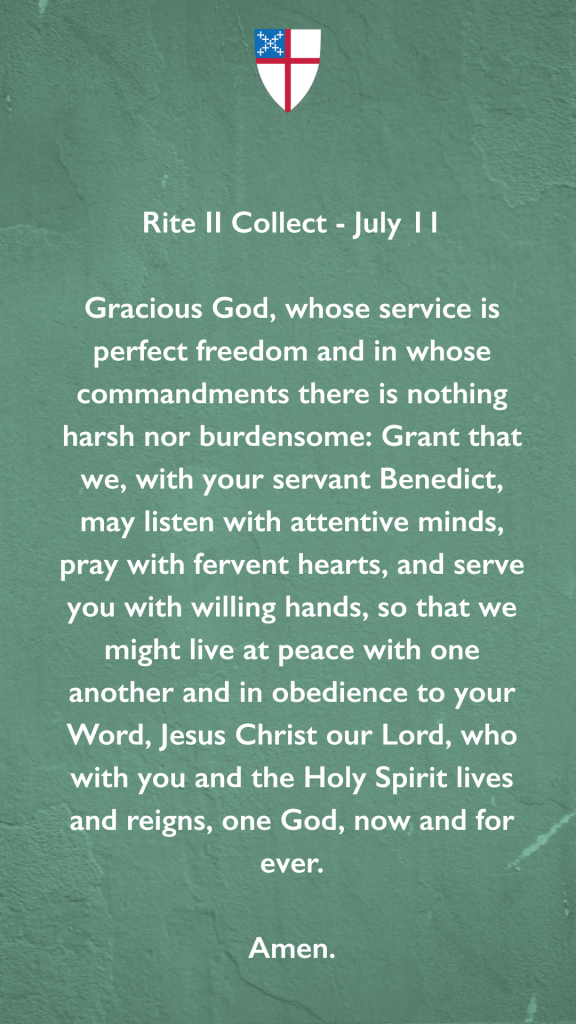
This page is available in: Español
The Old Testament, New Testament and Gospels readings are from the New Revised Standard Version Bible, copyright © 1989 National Council of the Churches of Christ in the United States of America. Used by permission. All rights reserved worldwide.
The Collects, Psalms, and Canticles are from the Book of Common Prayer, 1979.
This page is available in: Español
